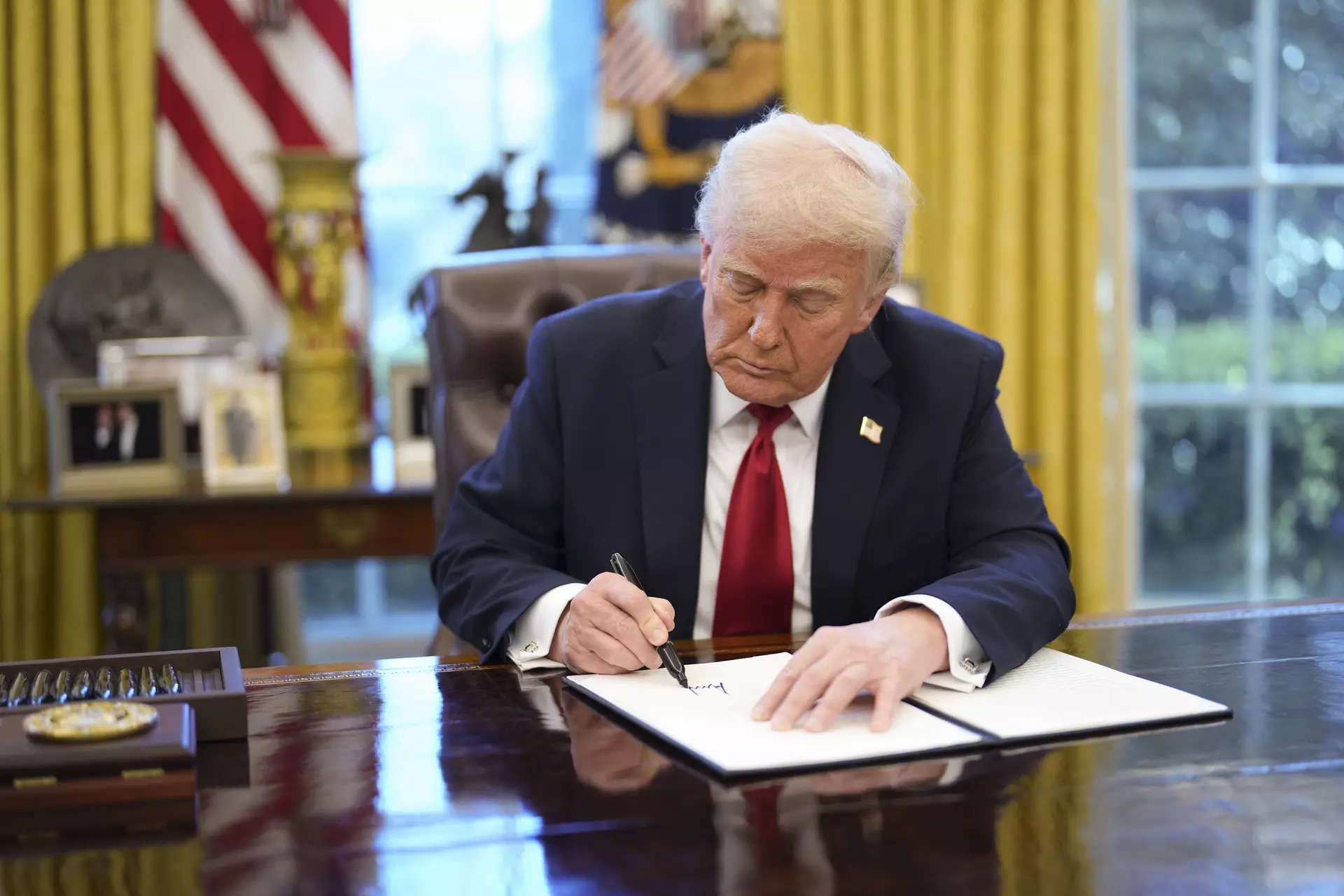Trump Slams 25% Tariff on Imported Cars.
BusinessPosted by AI on 2025-03-27 14:12:18 | Last Updated by AI on 2026-02-04 08:24:41
Share: Facebook | Twitter | Whatsapp | Linkedin Visits: 68

WASHINGTON D.C. – President Donald Trump announced sweeping new tariffs of 25% on all imported vehicles and key auto parts, sending shockwaves through the global automotive industry. While the move was touted as a measure to protect American manufacturing jobs, its impact on Tesla, the nation's leading electric vehicle manufacturer, and the broader market remains uncertain. Though Tesla assembles its cars in the US, the company relies on a complex global supply chain for crucial components. This reliance on foreign parts will likely translate into increased production costs, putting upward pressure on Tesla's already premium vehicle prices.
"This tariff is a major blow to the auto industry, including Tesla," said industry analyst Daniel Ives of Wedbush Securities. "While the company avoids the direct import tax on finished vehicles, the increased cost of parts will eat into their margins and potentially force price hikes, which could dampen demand in an increasingly competitive EV market."
The tariffs, which take effect immediately, are expected to trigger retaliatory measures from major auto-exporting nations like Japan, Germany, and South Korea, further disrupting global trade. This escalating trade war could exacerbate Tesla's challenges as established automakers ramp up their own electric vehicle offerings.
Ironically, while intended to bolster domestic manufacturers, the tariffs may inadvertently benefit Tesla in one specific way. By increasing the price of imported gasoline-powered vehicles, the new tariffs could make Tesla's electric cars relatively more attractive to price-conscious consumers. However, this potential advantage is likely to be offset by Tesla's own price increases due to rising parts costs.
The wider implications of the tariffs paint a bleak picture for the North American auto market. Analysts predict reduced vehicle production across the board, leading to job losses not only within foreign automakers’ US plants but also among American parts suppliers. Consumers are expected to face higher sticker prices for both domestic and imported vehicles, potentially dampening demand and slowing economic growth.
The long-term effects of this protectionist policy remain to be seen. However, the initial reaction from the auto industry and market analysts suggests a turbulent road ahead, particularly for Tesla as it navigates the complexities of a globalized supply chain in an increasingly volatile trade environment.
Search
Categories
Recent News
- Bengaluru Metro's Pink Line Expansion: A Breath of Fresh Air for Commuters
- Ghana's Youth Drug Crisis: A National Tragedy
- India's Services Sector Soars: A Boost for the Economy
- Gold Bond Investors Face New Tax Reality
- Bengaluru Colleges Face Uncertain Future: The Looming Fee Hike Crisis
- Anna University Convocation: Minister's Absence Sparks Speculation
- GATE 2026: Countdown to the Crucial Exam
- Sisters' Tragic Fall: A Shocking Wake-Up Call for Ghaziabad